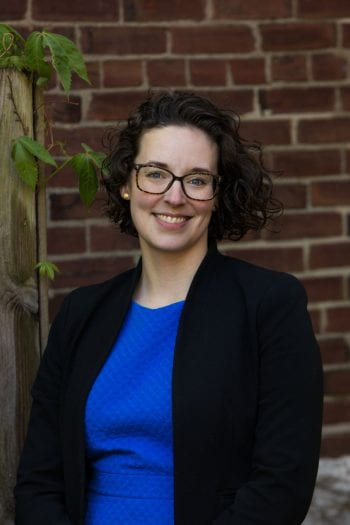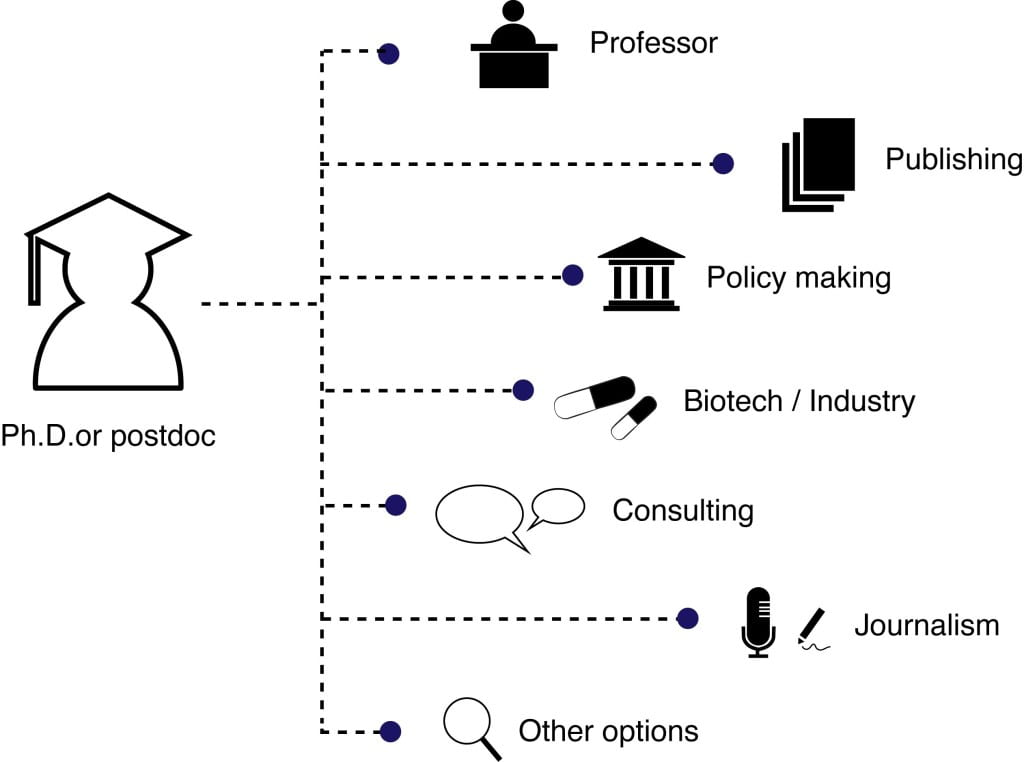
Science communication skills are essential for a variety of careers, yet PhD candidates and holders alike often do not consider where or how far such a “soft” skill may take them outside of the academic research lab vs industry dichotomy. After a brief time spent as a postdoctoral fellow, Dr. Jacqueline (Jacqui) Hawkins-Salsbury put her love of writing and communicating science to use in a lesser-known career path: Advancement.
University Advancement, also known as Alumni and Development Programs, refers to fundraising efforts and programs that ensure the success of the institution’s strategic priorities, such as advancing human health. Until earlier this year, Jacqui served as the Director of Corporate and Foundation Relations at Washington University in St. Louis (WUSTL), a job she described as “fundraising from companies and foundations by getting good proposals out from the right people at the right time.” Over the past six years, she has helped numerous WUSTL scientists tailor their writing and presentations to the decision makers behind foundation awards, who may not be scientists. She reviewed content with an eye and ear for the lay audience while focusing on content and persuasion. The job involved editing proposals, writing from scratch, and even analyzing data. For example, she sifted through historical data to determine what makes a successful applicant based on the University’s past foundation awardees, and vice versa, by better understanding what foundations are looking for in an application.
Jacqui’s career path was, at one point, unclear. After earning her PhD from WUSTL’s Molecular Genetics and Genomics program in 2012, she went on to complete two short postdoctoral fellowships. During this time, she confirmed for herself that she wanted to step away from the bench, but she did not know what the next step was. The question: “What are your plans after you get your PhD?” needn’t be anxiety-inducing. For those in a similar situation, she recommends the following exercise: ask yourself what you like doing every day. What activities do you get excited about, and conversely, what do you dread? She also advises students to try many things throughout their PhD to “see what sticks.” For Jacqui, she enjoyed writing, giving presentations (even thesis committee meetings!), and talking about and debating science. Her thesis mentor was supportive and encouraging of her interests by giving her the opportunity to write review and research articles, participate in peer reviews, and teach a variety of audiences.
She wanted to stay in academia because she enjoyed the intellectual aspect of it. With that list of ‘desired activities’ in hand, Jacqui started sharing it with her colleagues. At the time, she didn’t know what career matched that list, but she hoped someone else did. Eventually, a friend connected her to someone in Advancement at WUSTL, and so her journey began.
A self-described extrovert, Jacqui enjoys being highly enmeshed and engaged in the research at WUSTL. In March, she became the Director of Scientific Training of Physician-Scientists in the newly established Division of Physician Scientists. Funded by WUSTL and the Burroughs Wellcome Fund, the Division serves as a home for physician-scientists at the resident level and beyond across the university. It also provides support for MD-only physicians that would benefit from physician scientist training programs (PSTP) but are not eligible for them. Since the Division is new, the road is not completely charted – but Jacqui enjoys the challenge. The vision for the Division was developed by Dr. Wayne Yokoyama, the Division’s Associate Dean, along with a committee of faculty committed to supporting the next generation of physician-scientists. The Division currently features three programs:
The first program, Dean’s Scholars, launched in the beginning of the COVID-19 pandemic and has already selected their first awardees. The second cycle just recently closed and awardees will be announced in early 2021. This award targets end-stage fellows and features two years of salary support, protected research time, and a mentorship committee. The Division recently launched two additional programs: a seminar series titled Community of Academic Physician-Scientists in Training (CAPSiT), and The Interesting Patient Study (TIPS). TIPS affords clinicians funds and protected research time to work with appropriate mentors and further study particularly unique clinical cases.
Jacqui likens her current role in a new and developing initiative to working for a startup: “You do whatever needs to be done,” she said. Her various tasks span the gamut from the conceptual to the procedural – from working with experts to conceive of programs to writing content for a new Division website, to moderating panel discussions as a part of CAPSiT. Jacqui is successfully integrating her graduate training by turning an idea into a deliverable (such as a thesis project or publication) for different audiences.
Where will your journey take you? No matter your training or career stage, take time to reflect, network, and explore. Networking need not be scary, many times it’s as simple as having a cup of coffee (virtual or otherwise!) with a colleague or friend and talking about your hopes and plans for your career. There are a plethora of opportunities awaiting, and you can start by getting involved with one of the organizations and student groups WUSTL has to offer.

Image source: http://sitn.hms.harvard.edu/flash/2015/what-the-heck-do-you-do-with-a-ph-d-in-the-biomedical-sciences/